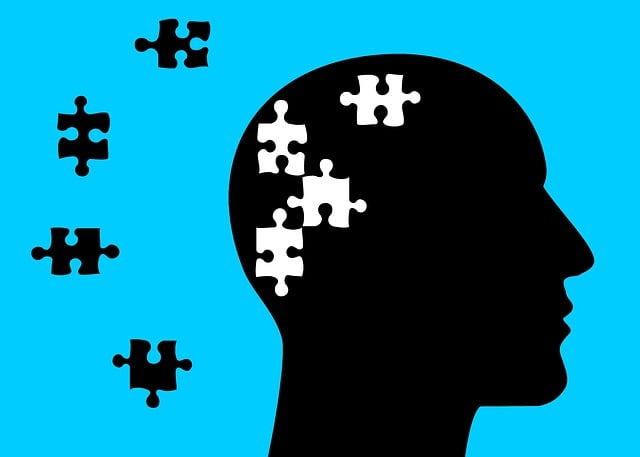In today's diverse healthcare landscape, Broomfield Play Therapy offers a unique approach to enhancing cultural competency among providers. By leveraging principles like Mind Over Matter for resilience building and incorporating mindfulness meditation from various cultural backgrounds, therapists create safe, inclusive spaces that foster trust and open communication. This holistic method improves patient outcomes, reduces stress for therapists, and promotes effective risk management planning through play-based techniques. Continuous training in Emotional Intelligence (EI) and Cultural Sensitivity ensures healthcare providers are equipped to meet the diverse needs of their patients, ultimately delivering more positive therapeutic experiences.
In today’s diverse healthcare landscape, cultural competency among providers is no longer an option but a necessity. This article explores the impact of cultural sensitivity on patient outcomes and therapist well-being, highlighting the transformative power of holistic approaches like Broomfield Play Therapy. We delve into implementing effective training programs and strategies for continuous improvement, emphasizing the importance of navigating cultural barriers to foster better care.
- Understanding Cultural Competency in Healthcare: A Necessity in Modern Practice
- The Impact of Cultural Sensitivity on Patient Outcomes and Therapist Well-being
- Broomfield Play Therapy: A Holistic Approach to Addressing Cultural Barriers
- Implementing Effective Training Programs: Strategies for Continuous Improvement
Understanding Cultural Competency in Healthcare: A Necessity in Modern Practice

In today’s diverse healthcare landscape, cultural competency is no longer an optional skill for providers; it’s a necessity. Understanding and respecting cultural differences can significantly enhance patient care and outcomes. Broomfield Play Therapy, for instance, incorporates Mind Over Matter Principles to foster resilience building and depression prevention in young patients, reflecting a culturally sensitive approach that goes beyond basic medical needs. By recognizing and appreciating the unique cultural backgrounds of their patients, healthcare providers can create a more welcoming and effective environment, ensuring better engagement and adherence to treatment plans.
Cultural competency involves not just tolerating but embracing diversity, including race, ethnicity, religion, gender identity, sexual orientation, and socio-economic status. It encourages providers to question their own biases and assumptions, adapt communication styles, and tailor interventions to meet the specific needs of each patient. This holistic understanding promotes trust and respect, reduces misunderstandings, and ultimately improves healthcare outcomes, benefiting both provider and patient communities alike.
The Impact of Cultural Sensitivity on Patient Outcomes and Therapist Well-being

Cultural sensitivity plays a pivotal role in shaping patient outcomes and therapist well-being, making it an indispensable component of healthcare provider training, including Broomfield Play Therapy therapy. When therapists demonstrate cultural competency, they create a safe and supportive environment that fosters open communication and trust. This, in turn, allows patients to express their unique needs and concerns without fear of judgment, leading to more accurate diagnoses and effective treatment plans.
Incorporating mindfulness meditation techniques and communication strategies tailored to diverse cultural backgrounds can significantly enhance this process. By promoting active listening and empathy, therapists can better understand their clients’ perspectives, experiences, and beliefs. This deeper level of connection not only improves patient outcomes but also contributes to the therapist’s mental wellness, as it reduces stress, burnout, and promotes a sense of fulfillment in their work. Such holistic approaches, often highlighted in popular Mental Wellness Podcast Series Production, are transforming healthcare delivery, ensuring that everyone receives care that respects and values their cultural identity.
Broomfield Play Therapy: A Holistic Approach to Addressing Cultural Barriers

Broomfield Play Therapy offers a unique and holistic approach to addressing cultural barriers in healthcare. By incorporating play-based techniques, this methodology facilitates communication and understanding between diverse patient backgrounds and mental health professionals. Through engaging activities tailored to individual needs, it fosters an environment of trust and empathy, enhancing the therapeutic process.
This method is particularly beneficial for risk management planning in mental health professions. By boosting confidence and social skills through play therapy, healthcare providers can better navigate cultural nuances, reduce miscommunication, and ultimately provide more effective care. This approach not only respects but also celebrates a patient’s cultural identity, ensuring a more inclusive and positive therapeutic experience.
Implementing Effective Training Programs: Strategies for Continuous Improvement

Implementing effective training programs is a dynamic process that requires continuous evaluation and improvement. For healthcare providers specializing in Broomfield Play Therapy, integrating strategies that enhance Emotional Intelligence (EI) and Stress Management is paramount. These skills not only contribute to better patient outcomes but also foster a more empathetic and culturally sensitive mental healthcare practice.
Regular workshops focusing on EI development can equip therapists with the tools to recognize and respond to patients’ emotional needs, thereby creating a safer therapeutic environment. Additionally, training in Cultural Sensitivity in Mental Healthcare Practice ensures that providers are adept at navigating diverse cultural backgrounds, beliefs, and values. This is especially important when treating a varied patient population in a multicultural society. Through interactive simulations, case studies, and peer discussions, therapists can enhance their ability to provide culturally competent care while managing their own stress levels effectively.
Cultural competency training is no longer a choice but an imperative in modern healthcare. By implementing evidence-based programs, such as Broomfield Play Therapy’s holistic approach, and focusing on continuous improvement through effective training strategies, healthcare providers can significantly enhance patient outcomes and their own well-being. This article has highlighted the critical role cultural sensitivity plays in creating inclusive care environments that respect diverse backgrounds, ultimately fostering better health outcomes for all.














